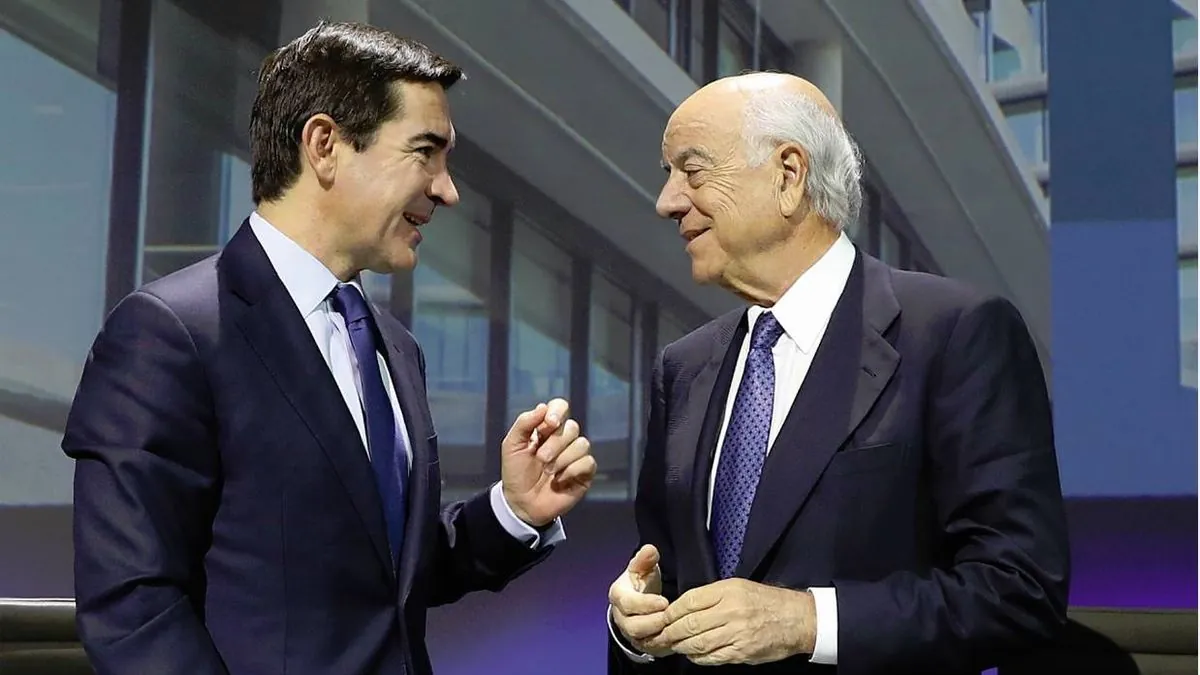In a significant move towards sustainable finance, BBVA, the Spanish lending giant founded in 1857, has joined forces with KKR, the renowned U.S. investment firm established in 1976. This strategic partnership, announced during New York Climate Week, focuses on investments linked to the global transition to a low-carbon economy.
At the heart of this collaboration is BBVA's $200 million investment in KKR's Global Climate Strategy. This initiative aims to identify and capitalize on climate infrastructure-related investments, reflecting the growing importance of sustainable finance in the global economy.
Javier Rodriguez Soler, BBVA's global head of sustainability and corporate & investment banking, expressed confidence in the future of low-carbon infrastructure. He stated, "We are confident that the second part of this decade will see strong growth of new low-carbon infrastructures. It is an immense opportunity." This optimism is well-founded, considering that renewable energy sources accounted for 29% of global electricity generation in 2020, with projections indicating that solar PV will become the largest source of power capacity by 2027.
The partnership between BBVA and KKR is not just a financial arrangement but a strategic alliance aimed at knowledge sharing and capability enhancement. Soler emphasized the importance of KKR's expertise in multiplying investments in infrastructure and climate projects. This collaboration aligns with the global trend of increasing investments in energy transition, which reached a staggering $755 billion in 2021.
BBVA's commitment to sustainability extends beyond this partnership. The bank has established a global financing unit specializing in clean technology innovation, with offices in New York, London, Madrid, and Houston. This aligns with the growing global focus on ESG (Environmental, Social, and Governance) assets, which are projected to exceed $50 trillion by 2025.
KKR's climate strategy has already made significant strides, with investments in companies like Zenobe, a UK-based transport electrification and battery storage solutions provider, and Avantus, a U.S. utility-scale solar and solar-plus-storage developer. These investments reflect the diverse opportunities in the low-carbon transition, from electric vehicles (which reached 10% of global car sales in 2022) to renewable energy infrastructure.
Emmanuel Lagarrigue, co-head of KKR's global climate strategy, highlighted the long-term nature of this investment opportunity. "We are still in the early innings of what will be a multi-decade transition to net zero (carbon emissions), which is one of the biggest investment opportunities of our time," he stated. This perspective aligns with global climate goals, such as the EU's aim to be climate-neutral by 2050 and the potential for sustainable technologies like hydrogen to meet 24% of global energy demand by 2050.
The collaboration between BBVA and KKR represents a significant step in the financial sector's response to climate change. As global sea levels have risen by about 8-9 inches since 1880, and with the world's forests absorbing 2.6 billion tons of carbon dioxide annually, such partnerships are crucial in driving the transition to a sustainable, low-carbon future.
"With KKR's proven experience in this area, we will share knowledge across our teams, capabilities and efforts in this strategic alliance in order to multiply investments in infrastructure and climate projects."
This partnership not only demonstrates the financial sector's commitment to addressing climate change but also highlights the immense economic potential of the green transition. With the global renewable energy market expected to reach $1.9 trillion by 2030 and the circular economy potentially generating $4.5 trillion of economic benefits by the same year, BBVA and KKR are positioning themselves at the forefront of this transformative era in global finance and sustainability.
